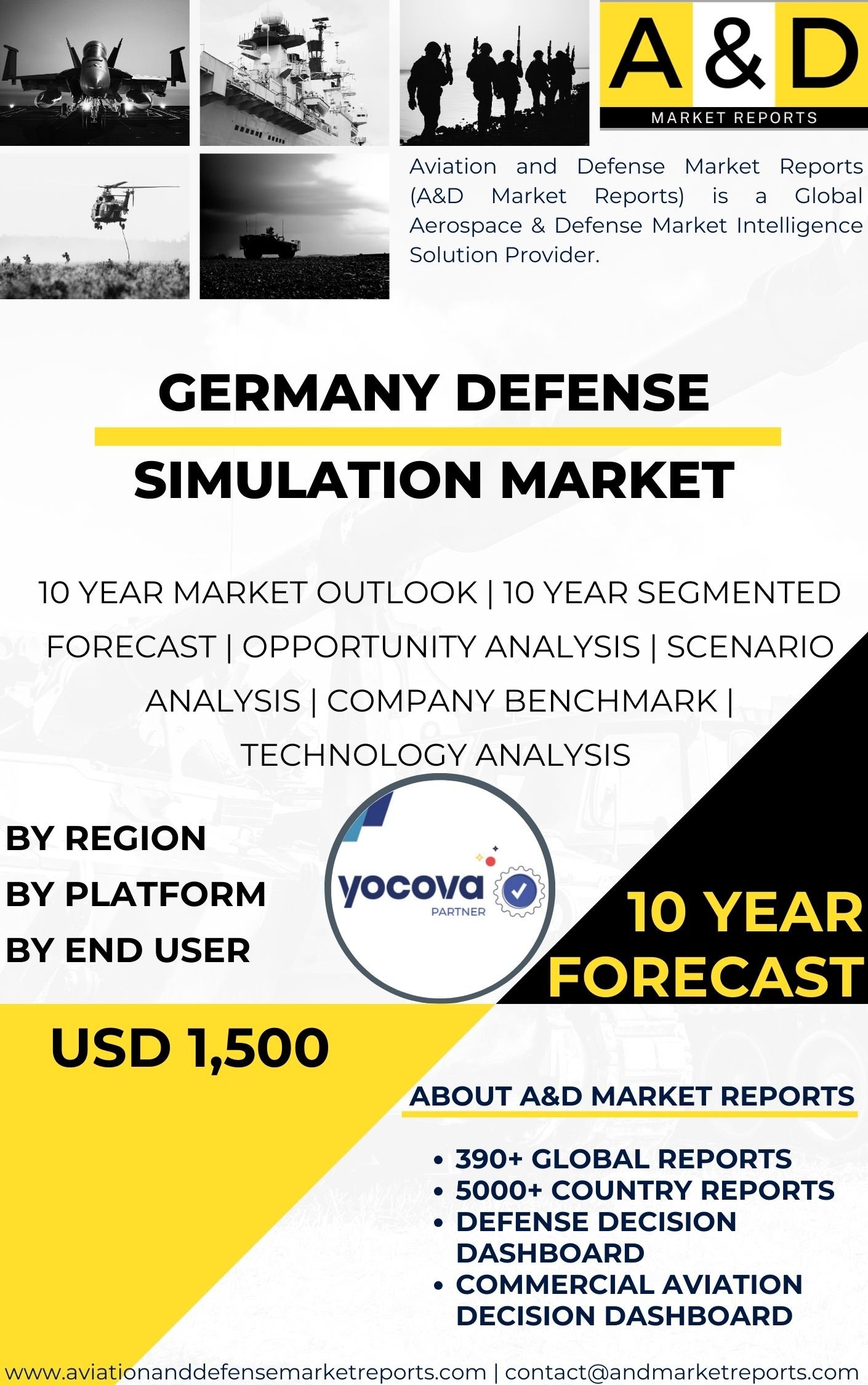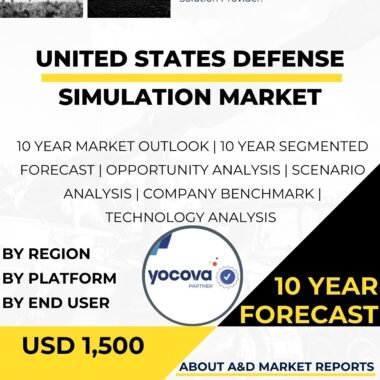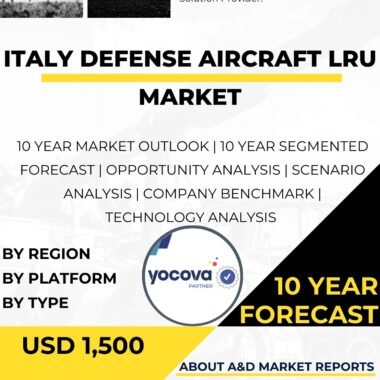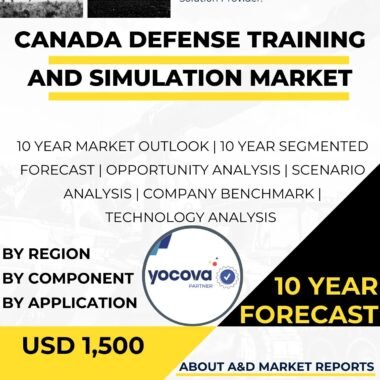Description
The Germany Defense Simulation Market is a vital and rapidly growing segment within the country’s defense industry. Defense simulation refers to the use of advanced computer-based technologies and virtual environments to replicate real-world military scenarios and training exercises. These simulations enable defense forces to enhance their training, decision-making, and operational preparedness while minimizing costs and risks associated with live exercises.
The adoption of defense simulation in Germany’s defense sector is driven by several key factors. First and foremost, simulation offers a safe and controlled environment for training and testing military personnel, equipment, and tactics. By providing realistic and immersive scenarios, defense simulations allow soldiers and commanders to practice and refine their skills in a risk-free setting, ensuring they are better prepared to handle complex and dynamic situations on the battlefield.
The Germany Defense Simulation Market is fueled by the country’s commitment to modernizing its defense training infrastructure and adopting innovative technologies. Germany recognizes the strategic importance of simulation in maintaining operational readiness, increasing mission success rates, and reducing the risk of human error during critical military operations.
The Germany Defense Simulation Market also benefits from a robust domestic defense industry with expertise in software development, virtual reality, and computer-based training systems. German companies are at the forefront of developing cutting-edge simulation technologies, contributing to the country’s self-sufficiency in meeting its defense simulation requirements.
A core objective of the Germany Defense Simulation Market is to provide the German Armed Forces with state-of-the-art simulation solutions that offer realistic and high-fidelity training experiences. These advanced simulations are designed to cover various military domains, including land, sea, air, and cyberspace, and are tailored to meet the specific needs of different branches of the military and operational units.
The adoption of defense simulation offers several benefits for the German defense forces. First and foremost, simulations enable personnel to gain practical experience in complex scenarios, enhancing their decision-making capabilities and critical thinking skills. By repeatedly practicing in virtual environments, soldiers can develop muscle memory and response patterns that are crucial in high-pressure situations.
Furthermore, the Germany Defense Simulation Market contributes to cost savings and resource optimization. Conducting live training exercises can be expensive and resource-intensive, requiring the deployment of personnel, equipment, and logistics. Simulation allows defense forces to reduce the frequency of live exercises while maintaining high levels of training effectiveness. This translates to cost savings and increased availability of resources for other critical defense needs.
Moreover, defense simulations offer the ability to analyze and evaluate performance through data collection and analysis. By capturing data on individual and collective performance during simulations, commanders can identify strengths and areas for improvement within their units. This data-driven approach to training and assessment enables continuous improvement and maximizes the impact of training efforts.
Additionally, the Germany Defense Simulation Market supports innovation and technological advancement within the defense sector. As defense forces embrace simulation technologies, they also foster expertise in artificial intelligence, virtual reality, and data analytics. This not only contributes to the growth of the domestic defense industry but also positions Germany as a global leader in defense simulation and training solutions.
However, the Germany Defense Simulation Market also faces certain challenges. One significant hurdle is the need to ensure the realism and accuracy of simulations. As defense forces increasingly rely on simulation for training and decision-making, it is essential that simulations accurately represent real-world conditions and scenarios to provide meaningful and effective training experiences.
Moreover, the Germany Defense Simulation Market must address interoperability and standardization issues. To achieve maximum efficiency and effectiveness, defense simulations must be compatible with existing military equipment, systems, and command structures.
Looking ahead, the Germany Defense Simulation Market is expected to witness continued growth and innovation. As defense forces increasingly recognize the value of simulation in enhancing training and operational readiness, the demand for cutting-edge simulation technologies will rise.
The German government’s commitment to investing in advanced simulation technologies and fostering collaboration with defense industry partners will be instrumental in driving the adoption and deployment of state-of-the-art simulation solutions.
In conclusion, the Germany Defense Simulation Market is a critical and rapidly expanding segment with far-reaching implications for the country’s defense capabilities and military readiness. With a focus on innovation, research, and collaboration, the German defense industry is poised to remain at the forefront of defense simulation development. Additionally, by adopting advanced simulation technologies, Germany can enhance its defense capabilities, improve training outcomes, and continue to foster technological innovation in the field of defense training. As defense simulation continues to evolve, the Germany Defense Simulation Market will play a pivotal role in ensuring the operational readiness and effectiveness of the German Armed Forces in an ever-changing and complex security landscape.




